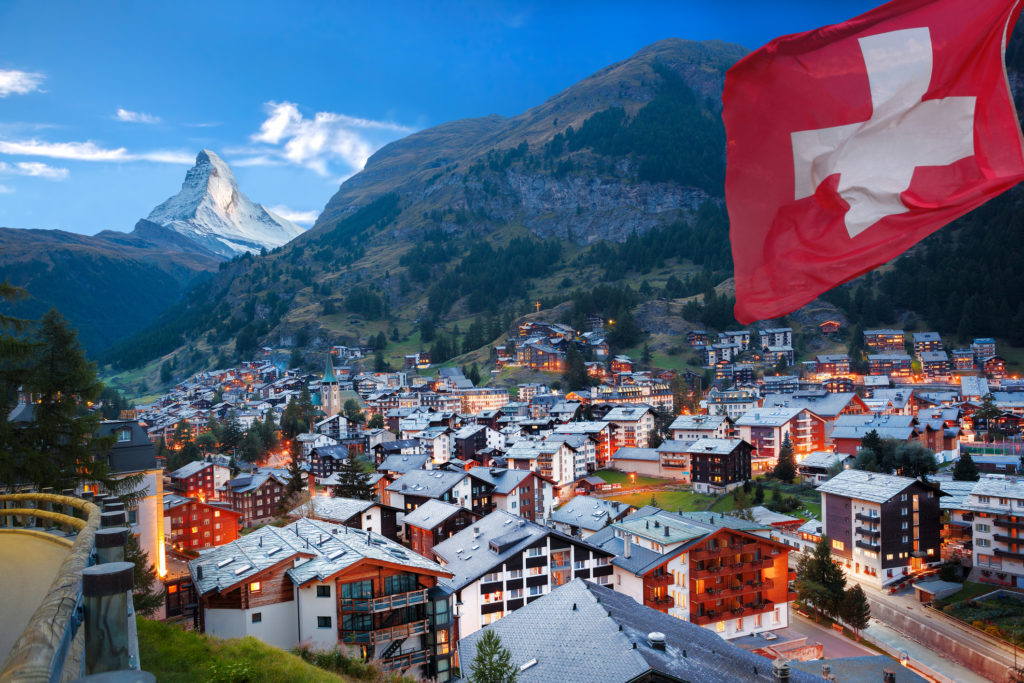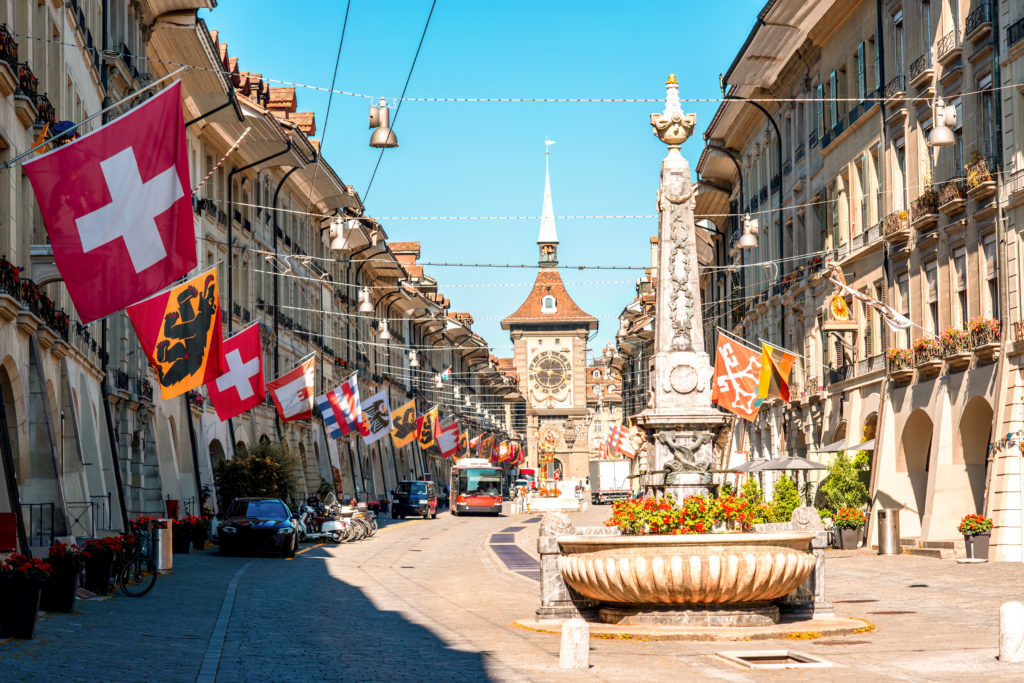Grüezi! Have you ever arrived to the German speaking part of Switzerland thinking they spoke traditional German, but got really surprised? In this post, we will tell you the most important words you need to know if you are travelling the country or have just moved in.
Swiss German itself is very diverse, since every German-speaking canton has its own distinct way of speaking the dialect. Bear in mind that vocabulary in this post will be written in Züritüütsch, the Zurich version. But it can be easily adaptable to any other Swiss German speaking area in the country.
Switzerland is a very multicultural country, even among Swiss themselves. It has 4 official languages: German is spoken by around 62% of the population, French by 23%, Italian by 8.5% and the Romance language Romansh, spoken by only 0.5% of Swiss.
However, the high German listed as a national language is not really the spoken on the streets. High German is used in education, signs, announcement and most communication media. But what Swiss people really speak is their own dialect, called Swiss German. Keep reading to find out 10 (although actually way more!) words to help you learn it.

Grüezi
Grüezi is a typical way of greeting, used in a more formal tone. Remember to add the ‘mitenand‘ after Grüezi if you’re talking to more than one person. The High German ‘Hallo‘ is not that common, but instead you can use ‘Hoi‘ or ‘Sali‘ when you greet young people for in an informal environment in general.
En Guete!
Instead of the typical ‘Guten Appetit’ that Germans use, this super nice Swiss German expression means ‘enjoy your meal’. And I personally find it sehr sympatisch!

Uf Widerluege
This expression is translated as ‘until we meet again’, and it works great in many settings. In order to say goodbye to someone, you can also use ‘Ciao‘, which comes from Italian and is more informal, as well as the German ‘Tschüss‘. To be more formal, the French derived ‘Adieu‘ works perfectly.
Proscht
Proscht, or Pröschtli, is one of my favorite Swiss words. It simply means cheers! Zum Voll is the High German version, but it is rarely used in the Zurich area.
Uusziit
Uusziit is an amazing word that means time off. Many people here tend to take a sabbatical at least once in their life, which, to be honest.. sounds like a great idea! Since it’s a feminine noun, the article is ‘die’.

Fröit mi
This expression is what you should use every time you meet a Swiss person. It comes straight from the High German ‘Freue mich’, and it translates as ‘nice to meet you’ or ‘nice to see you’.
Viel Glück
This friendly expression means ‘good luck’, and it’s nice to say to someone when you know they have something important, or just something that excites them. A nice alternative is ‘Alles guet‘, although this translates more as ‘all good‘. You can also use ‘Vil Spass‘, that is ‘have fun‘!
Entschuldigung
Entschuldigung is for Swiss and High German what ‘prego‘ is for Italian. It means ‘excuse me‘. Did you accidentally bumped someone on the street? Entschuldigung. Do you need some space to walk through? Entschuldigung. Someone needs to repeat what they had just say? Entschuldigung, but with a question tone. Easy and versatile!

Merci
This word, that comes straight from French, means thank you. ‘Danke‘, from German, is also widely used. Although Merci is more associated with formal settings while Danke tends to be more informal. These rules are not taken as straightforward as greeting words rules, because being kind and saying thank you is always appreciated no matter how you say it. Remember to add a ‘vilmal’ at the end if you want to say ‘thanks a lot’.
Guete Morge/ Gueten Abig
Guete Morge and Gueten Abig are also expressions that can be used in many settings, formal and informal. They mean ‘good morning’ and ‘good evening’, respectively. Guete Morge is intuitively used when you greet someone in the morning. Instead, Gueten Abig tends to be used when you are leaving the scene. Remember to only use ‘Guete Nacht’ (good night) if you’re actually going to sleep, as in English.
Let me know in the comments if there is any word I should add own the list. Until the next time!